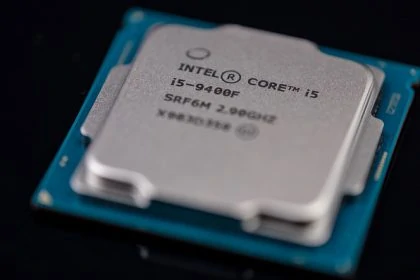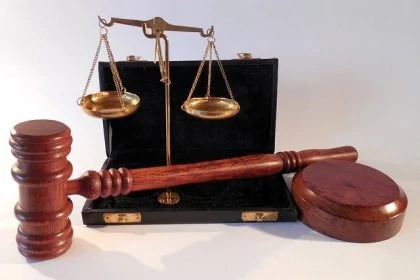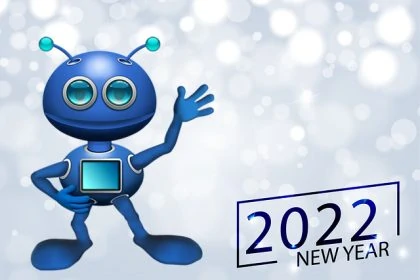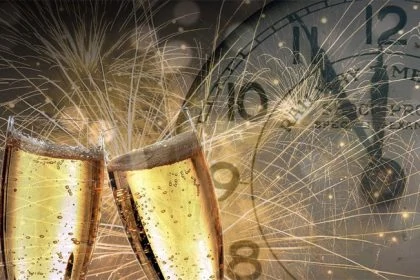The more than 20 year long copyright dispute about the music sampling ‘Metall auf Metall’ goes back to the OLG and thus to the next round in court. Although the Federal Court of Justice (BGH) today found an infringement of the right of reproduction by the sampling, this was to be re-examined by the OLG in the first instance.
 In its today’s judgement, the Federal Court of Justice (BGH) did indeed establish an infringement of the reproduction right by the music sampling ‘Metall auf Metall’, but only for the period after 22 December 2002, as the EU Directive 2001/29/EC on reproduction rights is only applicable from this date. In fact, however, the controversial ‘metal on metal’ music sampling was created and published in 1997.
In its today’s judgement, the Federal Court of Justice (BGH) did indeed establish an infringement of the reproduction right by the music sampling ‘Metall auf Metall’, but only for the period after 22 December 2002, as the EU Directive 2001/29/EC on reproduction rights is only applicable from this date. In fact, however, the controversial ‘metal on metal’ music sampling was created and published in 1997.
2 seconds Music Sampling in focus
The background to the case is the short rhythm sequence in the 1977 song ‘Metall auf Metall’ by the band Kraftwerk, in which music producer Moses Pelham underlaid the title “Just me” in 1997 with a loop of a few seconds of the controversial music fragment, inserted at a slightly slower speed. In the 1997 title “Nur mir”, a loop of a few seconds picked up the short original metallic rhythm sequence and changed it.
Since then, the band Kraftwerk and Pelham GmbH have been fighting over the sampling of the music fragment. Is a short music fragment allowed to pick up a well-known piece of music as a sampling or is this a copyright infringement and violation of the reproduction right?
ECJ in 2019 on music sampling ‘Metall auf Metall’
The case has already gone through many instances, most recently the European Court of Justice (ECJ) ruled in July 2019 that EU member states may not make any exception to the corresponding EU Directive 2001/29/EC restriction with regard to the rights of the phonogram producer. This was imminently important for this case, because Art. 2 letter c of Directive 2001/29 allows phonogram producers to “authorise or prohibit, in whole or in part, direct or indirect, temporary or permanent reproduction by any means and in any form”. The exclusive reproduction right of phonogram producers in the Union is thus clearly established.
The European Court of First Instance clarified that the reproduction of an audio fragment of a phonogram by a user is in principle to be regarded as a partial reproduction of that phonogram within the meaning of Article 2(2)(b) of the Directive. c of Directive 2001/29.
However, if a fragment is inserted in an altered form which is not recognisable on hearing, the phonogram producer of the original fragment cannot invoke his reproduction rights, the ECJ ruled.
BGH refers the case back to the OLG
The Federal Court of Justice today ruled accordingly that an infringement of the plaintiffs’ right of reproduction as producers of phonograms under § 85 (1) sentence 1 case 1 UrhG should be re-examined, since according to the ECJ ruling the defendants cannot rely on free use within the meaning of § 24 (1) UrhG.
Nor can the defendants successfully invoke a limitation rule; neither a quotation, caricature or parody is present, nor is the disputed musical fragment an insignificant accessory within the meaning of § 57 UrhG, the BGH ruled.
According to these standards, the removal of two bars of a rhythm sequence from the plaintiffs’ phonogram and its transfer to the defendants’ phonogram constituted a reproduction within the meaning of Article 2(2)(b) of the Copyright Act. c of Directive 2001/29/EC and thus also of § 85.1 sentence 1 case 1 UrhG, the Federal Court of Justice ruled.
However, this could not be the final assessment, the BGH added. For the Higher Regional Court had not made any findings as to whether the defendants had undertaken acts of reproduction or distribution from 22 December 2002 onwards or whether they could be seriously and concretely expected to do so from then on. However, the defendants had reproduced and distributed the audio carriers objected to by the plaintiffs before 22 December 2002. However, according to Art. 10, the reproduction right according to the EU Directive is only applicable to acts of use after 22 December 2002.
The first appeal judgment was consequently overturned today by the BGH (I ZR 115/16) and the case ‘Metall auf Metall’ was referred back to the Higher Regional Court.
Would you also like to secure protective rights for a work or a trademark?
We consider each case individually and carefully. Take advantage of a non-binding recall appointment with us today!

Sources:
PM of BGH form 30. April 2020 – I ZR 115/16 – ‘Metall auf Metall’ IV
Image:







Leave a Reply